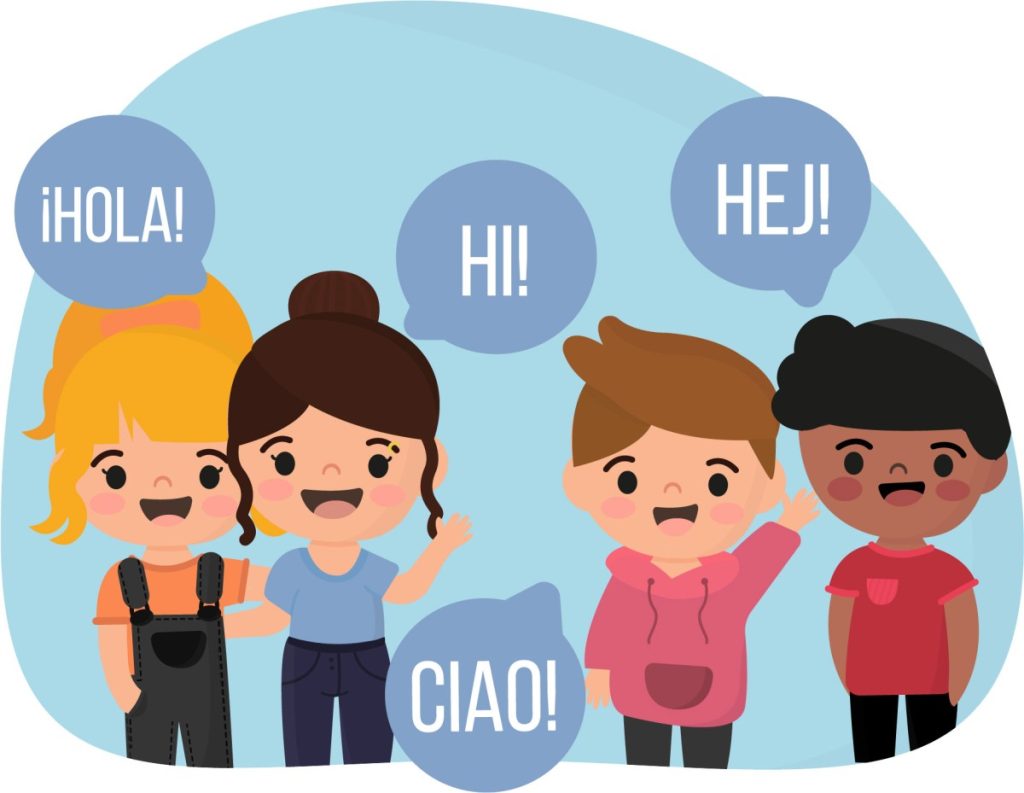The Cognitive Benefits of Bilingualism
Research underscores the profound impact of bilingualism on a child’s brain structure and function, revealing that bilingual children often display superior executive control skills. These skills, crucial for tasks involving attention, problem-solving, and toggling between tasks, are fostered by the brain’s adaptation to managing multiple language systems, thereby enhancing cognitive flexibility and inhibitory control.
Emotional and Social Advantages
Bilingualism extends its benefits beyond cognitive enhancements, fostering greater emotional intelligence and social adeptness. Children proficient in more than one language often exhibit a deeper understanding of cultural nuances, promoting empathy and facilitating smoother social integration in our increasingly globalized world.
Academic and Career Prospects
The academic journey and career opportunities for bilingual individuals expand significantly due to their linguistic capabilities. Fluency in multiple languages is not only advantageous in academic settings but also highly valued in the global job market, offering bilingual individuals a competitive edge.
Challenges and Myths
Despite the clear benefits, myths surrounding bilingualism persist, such as the misconception that bilingual children might be confused or that bilingualism could hinder their language development. However, substantial evidence debunks these myths, affirming that bilingualism enriches rather than confuses linguistic growth.
Practical Tips for Parents
For parents eager to embark on the bilingual journey with their children, the path is filled with enriching opportunities. Engaging in simple, everyday practices such as sharing stories in multiple languages, participating in cultural activities, and encouraging conversations in different languages at home can significantly bolster language acquisition.
Here are some more practical ideas to foster bilingualism in your preschooler:
- Engage in Language-Rich Interactions: Regularly converse with your child in both languages. Use everyday activities as opportunities for language immersion, such as mealtime, playtime, and routine outings. (This is great for adults too! Studies have shown that bilingualism contributes to cognitive reserve and working memory efficiency, highlighting differences in brain and behavioral outcomes between monolingual and bilingual older adults.)
- Incorporate Multimedia Resources: Utilize bilingual books, music, and educational apps that encourage language learning through engaging and interactive content.
- Join Bilingual Playgroups or Educational Settings: Enroll your child in bilingual preschool programs or playgroups. This exposes them to peer interactions in a second language, fostering both linguistic and social skills.
- Celebrate Cultural Events: Participate in cultural events and holidays that pertain to the languages being learned. This enhances cultural understanding and language skills simultaneously.
- Encourage Family Participation: Involve family members who are proficient in the second language in your child’s learning process. Regular interaction with fluent speakers reinforces language acquisition.
- Set Realistic Expectations: Understand that language learning is a gradual process. Celebrate milestones and progress without pressuring the child, keeping the experience positive and encouraging.
In conclusion, the venture into bilingualism promises a host of cognitive, social, and professional benefits. By embracing multilingualism, families not only equip their children with valuable skills but also open doors to a world rich in cultural diversity and understanding. As the interest in raising bilingual children continues to soar, it’s an opportune moment for parents to explore the enriching world of bilingual education for their preschoolers.
About Little Planet Preschool
At Little Planet Preschool, we embrace the philosophy that children thrive in an environment where learning comes through active engagement and exploration. Understanding that our young learners absorb knowledge most effectively when they are moving and interacting with their world, our curriculum is meticulously designed to foster active learning. Through developmentally appropriate activities, we ensure that our students are not just passive recipients of information but are actively involved in the learning process. Our lesson plans encourage exploration, hands-on experience, and active participation, enabling our students to engage deeply with the material and their surroundings. We believe that this approach lays a solid foundation for lifelong learning, instilling in our children a love for discovery and a curiosity that extends far beyond the classroom. Join us on this exciting journey of exploration and growth at Little Planet Preschool, where every day is an adventure in learning.
Interested in enrolling your preschooler? Please read our registration guidelines.

